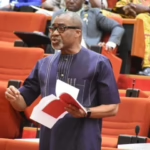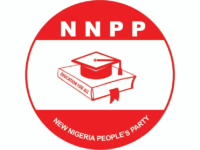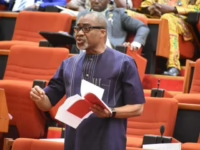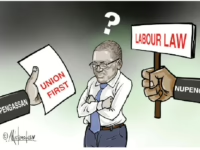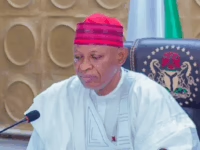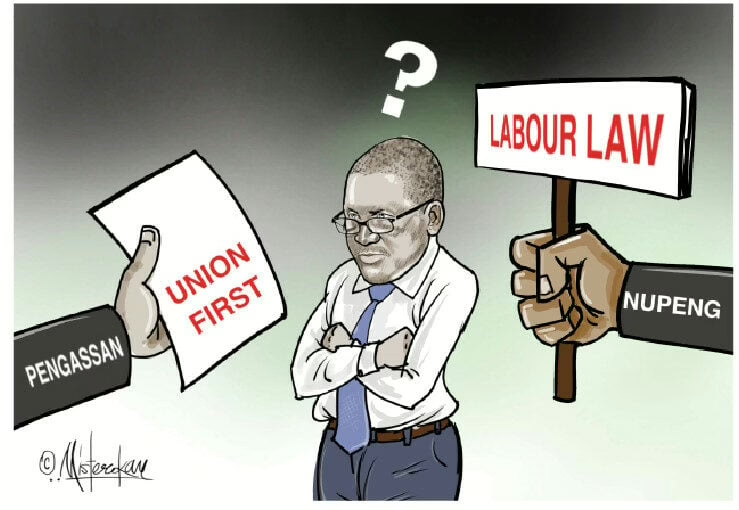Nigeria’s relationship with oil has always been fraught with complexity. From the initial discovery of crude oil in Oloibiri to the persistent fuel shortages that disrupt everyday life, oil is less a mere commodity and more a battleground where power struggles, political interests, and survival instincts intersect. The latest chapter in this ongoing saga is unfolding not within government corridors or offshore platforms, but at the gleaming Dangote Refinery-a bold private-sector venture aiming to reshape the nation’s energy landscape. Yet, instead of fostering unity and national pride, the refinery has become a flashpoint of conflict. Rather than collaboration, discord prevails, turning this industrial marvel into a reflection of Nigeria’s enduring tension between labor forces and capital owners.
The dispute centers on the refinery’s leadership clashing with the prominent oil and gas unions, PENGASSAN and NUPENG. While management strives to maintain control, wary of the unions’ influence, the labor groups insist on formal recognition, citing constitutional protections and long-standing customs. Both parties claim to uphold principles, yet both exhibit inflexibility. Caught in this deadlock is Nigeria’s most ambitious industrial project, at risk of becoming a cautionary tale of mistrust and squandered potential.
Leadership Haunted by Uncertainty
It is understandable why the refinery’s executives might feel apprehensive. They oversee a sprawling complex, akin to a small metropolis, funded with immense capital and carrying the aspirations of a nation alongside the reputation of one of its most renowned entrepreneurs. The threat of strikes, operational halts, or political interference looms large. To management, every union demand appears as a potential wedge that could destabilize operations-grant recognition today, and tomorrow they might face strategically timed walkouts that exacerbate fuel shortages nationwide.
However, fear is an inadequate foundation for effective leadership. Viewing union recognition as a concession rather than a legal and moral imperative undermines management’s credibility. In Nigeria’s industrial context, authority is fragile without legitimacy. When workers perceive antagonism toward their rights, when judicial bodies reject evasive tactics, and when public opinion favors the underdog, authority weakens. Attempts to cling to control through power alone often backfire-a recurring theme in Nigeria’s governance history.
Unions Overestimating Their Influence
While management wrestles with anxiety, the unions display a degree of overconfidence. For PENGASSAN and NUPENG, the refinery’s strategic importance demands their full involvement. They regard recognition not as a negotiable matter but as an inevitable right. Their stance is that every employee must be unionized, every refinery organized, and every employer submit to the established labor frameworks that have shaped the industry for decades.
Yet, legitimacy is nurtured through voluntary engagement, not enforced membership. By insisting on compulsory unionization, the unions risk turning a constitutional right into a burdensome obligation. Younger workers, influenced by evolving labor markets and less attached to traditional unionism, may view these organizations less as protectors and more as gatekeepers. Management, in turn, perceives adversaries rather than collaborators. By confusing coercion with appeal, the unions jeopardize the very support they seek to cultivate. True influence is earned through service, not demanded through force.
Labor Relations Beyond the Plant
The dispute extends far beyond the refinery’s physical boundaries. It unfolds within Nigeria’s broader socio-political environment, where legal frameworks, political maneuvering, and public sentiment weigh as heavily as financial considerations. Management issues carefully worded statements about restructuring, while unions respond with allegations of anti-labor tactics. Regulatory bodies become involved, security agencies monitor the situation, and courts stand ready to intervene. Meanwhile, the Nigerian public watches closely-tired of fuel disruptions but instinctively supportive of workers’ rights.
This is the realm of nonmarket strategy, where the battle is fought not only over immediate gains but over shaping public narratives. A company may win in court yet lose public trust. A union may succeed in striking but risk alienating consumers if hardships mount. Both sides have erred in treating the refinery as an isolated entity. In reality, it is a stage where every action resonates well beyond the gates of Lekki.
Lessons from the Past
Nigeria’s history offers clear warnings. In the late 1970s, the government attempted to suppress oil workers who, empowered by the country’s oil wealth, demanded greater recognition and benefits. The state responded with dismissals and decrees, while unions retaliated with crippling strikes that shook the economy and forced policy reversals. Authority imposed without legitimacy proved unsustainable. The lesson was harsh but clear: silenced workers eventually find ways to make their voices heard.
By contrast, post-World War II Germany provides a compelling example. Scarred by conflict and determined to rebuild, German industrialists and unions embraced co-determination-granting workers a say not only in wages but also in corporate governance. Through works councils and supervisory boards, legitimacy was institutionalized. Management retained authority, unions gained formal recognition, and the system fostered decades of industrial harmony. German factories thrived under this balanced approach, becoming pillars of Europe’s economy.
The takeaway is unmistakable. Nigeria’s refinery cannot be managed through fear nor organized by decree. Exclusion breeds rebellion; coercion breeds resentment. Authority and legitimacy must coexist to sustain progress.
The Danger of Inflexibility
The core tragedy of the Dangote Refinery dispute lies not in the correctness of either side, but in their unwillingness to compromise. Management believes that denying recognition will safeguard operations, while unions insist that mandatory membership will guarantee loyalty. Both misinterpret the dynamics at play. Authority without legitimacy invites resistance; legitimacy without adaptability leads to irrelevance.
Such rigidity narrows the avenues for resolution, turning potential dialogue into a contest of wills and transforming a possible partnership into a zero-sum confrontation. This national asset becomes hostage to narrow interests and personal agendas. It is a familiar irony in Nigeria: the grander the project, the more trivial the disputes that threaten it.
Charting a Path Forward
A more constructive approach is possible. Management could view union recognition not as a concession but as a strategic advantage. A unionized workforce need not be a source of disruption; when engaged through structured communication, it can become a pillar of stability. Recognizing unions signals respect for legal frameworks, reassures regulators, and enhances credibility both domestically and internationally. Authority grounded in legitimacy is inherently stronger.
Similarly, unions could shift focus from compulsory membership to demonstrating tangible value. Rather than demanding dues as a form of tribute, they could earn trust by championing workplace safety, establishing transparent grievance procedures, and advocating for genuine career development. When workers perceive clear benefits, union membership grows organically. Influence built on service endures far longer than that built on intimidation.
The government also has a critical role. It must move beyond vacillation between neglect and heavy-handedness. Consistent enforcement of labor laws, applied impartially even to the most influential corporations, is essential. This foundation supports an investment climate that balances productivity with fairness.
Conceived as the jewel in Nigeria’s industrial crown, the Dangote Refinery’s future depends less on engineering feats or financial investment and more on the nation’s ability to manage labor relations with wisdom and pragmatism. This monumental project cannot afford to be reduced to a tug-of-war fueled by suspicion and stubbornness. If labor and management can discover common ground, the refinery may finally embody its intended promise: a vision of a Nigeria that truly works.


